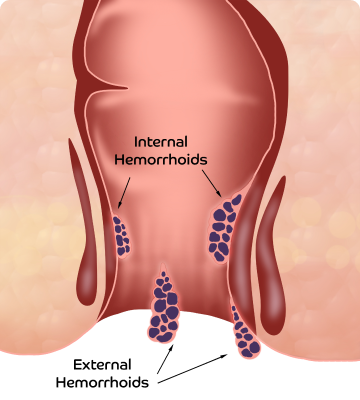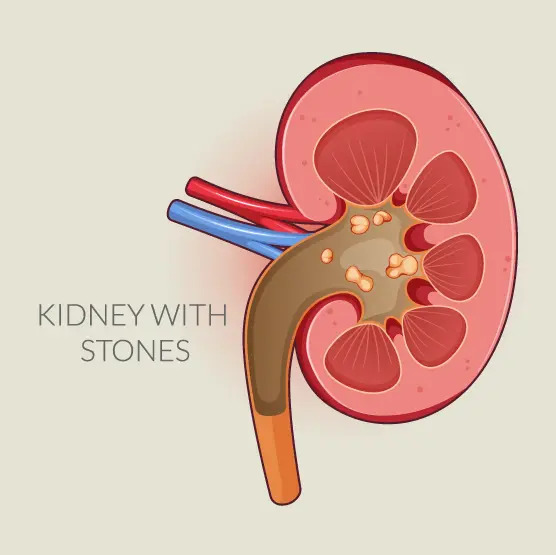What are the benefits of undergoing kidney stone removal surgery in Kanatal from Pristyn Care?
It is necessary to treat kidney stones. Kidney stones may not always cause pain or symptoms, but it does not indicate that kidney stones will never cause trouble. Pristyn Care provides advanced treatment for kidney stone surgery. We are equipped with the latest technology that ensures a very high success rate. Pristyn Care also offers daycare surgery which means you can go home on the same day of surgery if your kidney stones doctor declares you fit. If you get the treatment for kidney stones from Pristyn Care, you will be liable for the following benefits –
- Pristyn Care assigns a care buddy who accompanies you on the day of surgery and takes care of all your paperwork.
- Daycare surgery has a higher recovery rate for best results.
- Highly experienced surgeons and doctors ensure a high success rate.
- Waver into the non-medical items.
- Free cab pickup and drop facility within the city
- Zero cost EMI facility
- Free consultation after the treatment.
What to expect after kidney stones surgery at Pristyn Care?
At Pristyn Care, our urologists will stay in contact with you throughout the recovery process and monitor your progress. Recovery after surgery for kidney stones may vary from one person to another depending upon the procedure and the individual’s health condition. You can resume your daily activities within two to three days if you undergo laser lithotripsy or ureteroscopy. After surgery, you may experience the following –
- Pain and nausea
- Bruising and soreness in the surgical site if the treatment is done via ECWL
- Discomfort and blood in the urine for a few days after the surgery in case of a ureteral stent.
What will happen if I do not get the treatment for kidney stones?
Surgery for kidney stones is necessary to avoid complications. There can be several risks and complications if you do not undergo kidney stone surgery –
- Kidney stones can cause hydronephrosis which is a serious medical condition. It is caused due to a blockage in the ureter due to kidney stones.
- Kidney stones can also turn into chronic kidney disease. You can develop more stones in the kidney if you do not undergo treatment.
- Untreated kidney stones can clog the ureter and form kidney infections.
- Untreated kidney stones can cause complications, such as infection, fever, or blood in the urine, which can be particularly dangerous
Different treatment options for kidney stones based on the size and location of the stone.
Kidney stones or renal calculi occur in different shapes or sizes depending on how long they are present in the body. Sometimes, these renal stones are minute and get flushed out through urine without medications or therapies. However, some stones can be stubborn and keep on accumulating over a period of time. Renal stones of such stubborn nature often obstruct ureteral passage or even form staghorn calculus. Some of the treatment options for kidney stones are as below-
Non-surgical methods – When the size of the stone is less than 5mm, urologists usually recommend non-surgical procedures for removing kidney stones. These may include home remedies, therapeutic medicines, medications such as pain-relievers, etc., that can help flush out kidney stones. The doctors usually recommend drinking excess water and staying hydrated to increase the fluid concentration in the urine. Several medications for kidney stones include –
- Ibuprofen (Advil) for pain
- Acetaminophen (Tylenol) for pain
- Naproxen sodium (Aleve) for pain
- Allopurinol (Zyloprim) for uric acid stones
- Thiazide diuretics to prevent calcium stones from forming
- Phosphorus solutions to prevent calcium stones from forming
- Sodium bicarbonate or sodium citrate to make the urine less acidic
In addition, the doctor may recommend some alpha-blockers such as tamsulosin (Flomax), dutasteride, etc., that can help the muscles in your ureter relax, making it easier for you to pass the stone quickly and with less pain.
Surgical methods – Surgical or less invasive procedures are regarded as the most effective way to treat large kidney stones. Doctors usually recommend surgical procedures for kidney stones if the size of the stones is greater than 5mm. There are 4 procedures to remove kidney stones –
- Extracorporeal Shock Wave Lithotripsy (URSL) – It is a non-invasive surgery that uses external shockwaves to break the stones into smaller pieces. The patient is administered spinal anesthesia to reduce the pain as the stones are flushed out of the body. ESWL is a conventional procedure that may require multiple sittings to break the stones completely.
- Percutaneous Nephrolithotomy/Nephrolithotripsy (PCNL) – PCNL is an advanced procedure to treat kidney stones of size greater than 14mm. It is also known as tunnel surgery due to the nature of small incisions. It involves small incisions near the flank area while the patient is under general anesthesia. The surgeon then uses a nephroscope to locate and break the stones into smaller pieces. If the stone is removed in its intact state, it is called nephrolithotomy, and if the stone is broken into smaller fragments, it is termed as nephrolithotripsy.
- Retrograde Intrarenal Surgery (RIRS) – RIRS is an advanced procedure to treat kidney stones with sizes between 8mm to 15mm. The patient is first administered with either spinal or general anesthesia for a minimal pain procedure. The doctor then inserts a thin, flexible endoscope attached with a tiny laser on the other end. The stones are subsequently broken into smaller fragments and flushed out through urine. The surgeon may choose to insert DJ stents before RIRS treatment. Stents enlarge the passage of the urinary tract for smooth movement of stones. The stents are removed when the stones are thoroughly flushed out of the body.
- Ureteroscopic lithotripsy (URSL) – Similar to RIRS, ureteroscopic lithotripsy also uses a thin ureteroscope that is attached to the camera and laser on the other end. URSL is also an effective surgical option for moderately sized kidney stones. The camera guides the surgeon inside the body to locate and break the stones. The urologists may insert ureteral stents to ease the movement of stones during the expulsion. The patient is administered with local or general anesthesia for a minimal pain procedure.
What to expect after your kidney stones procedure?
The patient is usually under the effects of anesthesia after the surgery and may suffer from mild dizziness and discomfort in case of stent insertion. Patients who have undergone invasive surgery may feel slight numbness around the site of the incision. Doctors at Pristyn Care guide you through the recovery period and monitor your health regularly to ensure you are in the best of your health. You may experience the following after your kidney stone surgeries –
- A small amount of bleeding in your urine for a few days to a few weeks after the surgery due to stent insertion.
- Mild pain and nausea as the stones are expelled from the body after the treatment.
- Some bruising on the back or side after your shock waves lithotripsy procedure.
Complications of untreated kidney stones
Kidney stone is a major condition that usually results in unbearable pain. However, people are at greater risk if they ignore the symptoms by prolonging the treatment. It can lead to several complications that can eventually become life-threatening-
- Hydronephrosis – When the stone blocks the ureteral passage, it creates difficulty for the urine to completely drain out from the kidneys. This leads to the accumulation of urine in the kidneys, causing swelling of a kidney. Hydronephrosis can occur in one or both kidneys, depending on the size and number of stones.
- Renal scarring – Urinary tract infection is a common bacterial illness that occurs due to prolonged kidney stones in the ureter. These stones can cause continuous scarring around the stone damaging the tissues and organs around the kidneys causing permanent renal failure.
- Kidney failure – Prolonged kidney stones can cause loss of kidney functions which can result in the need to remove either of the kidneys (nephrectomy).
Booking an Appointment with the best urologist for kidney stones surgery
Pristyn Care has some of the best urologists with adequate training and years of experience in kidney stone surgeries. Our doctors and surgeons are upskilled in performing advanced treatment for the best results. You can book an appointment with the kidney stones doctors at Pristyn Care to get rid of excruciating kidney stones pain in the following ways:
- You can fill out the patient form on our website www.pristyncare.com. A team of medical coordinators will reach out to you at the earliest to gather details from your end once the appointment form is submitted. The appointment will be subsequently fixed with the concerned urologist according to your schedule.
- You can directly connect with our medical coordinators via the contact number on our website. A team of dedicated medical coordinators will gather inputs from your end and connect you with the kidney stones doctor near your area and book your appointment consecutively.
- You can also book an appointment through our Pristyn Care app. Our medical coordinators will arrange an offline or online consultation with our kidney stones experts near your area at the earliest via video call. A nominal consultation fee will be charged.









.svg)









